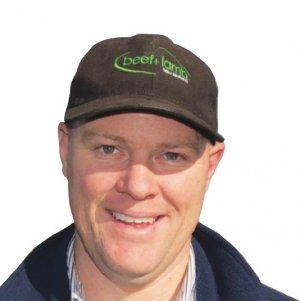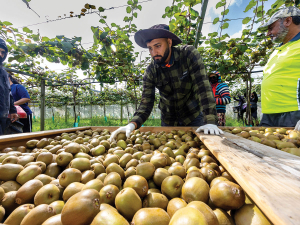Gary Massicks told Rural News at a recent BLNZ field day on winter cropping at Waiouru Station that he’s seen instances of farmers growing a winter crop and not knowing exactly why they did it.
This supports a view that farmers and commercial growers indulge in ‘recreational cultivation’ – they spend a lot of time on the tractor for little monetary gain.
“It costs a hell’uva lot to establish a crop so it’s important they make money out of it,” Massicks says. “Farmers often overstock and feel they have to feed all their animals.
“It must be looked at on a case-by-case situation, but sometimes they might be better off to reduce their stocking rate by 5% and have 10% better performance. I’ve noticed that in the last few years when people were pushing stocking rates and performance was compromised. They’d be better off a little under-stocked and getting better animal performance.”
In terms of crops, Massicks says farmers must know what they are going to do with their winter crop and whether they are going to make any money out of it.
“The focus should be, ‘do they know how much crop they’ve got, which animals they are going to feed it to and what their utilization is going to be?’ Are they going to grow or just maintain the animals or have they got animals going backwards [on these crops]?” he says.
Massicks says a cropping programme should be driven by the feed budget and by a plan. He says some farmers have neither and just tend to be production driven.
“[Any] crop must fit the feed budget and [a farmer’s] plan. It’s important they don’t cut corners because this will compromise the yield of the crop. They also need to then make sure they get good utilisation of feed.”
At the field day, Massicks drew attention to another unusual issue likely face sheep farmers in the coming months.
“This winter many ewes are carrying more condition than they normally would. But the heavier the animals, the more feed they need to drive them or if you like to keep alive every day. So there’s a problem if the ewe goes in heavy, doesn’t get fed well and comes out skinny or light because it will not be able to produce enough milk to feed its lambs.”
He says it’s important farmers feed their ewes well to avoid problems.
“For a ewe feeding twins they are not going to produce enough milk…. If they’re not going to be offered enough feed to maintain body weight then produce enough milk to keep those two lambs alive – well what’s the point.”
More from the Waiouru Station field day pages 23-24.

















